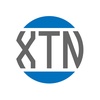In an era where technology and healthcare are increasingly intertwined, the cybersecurity of medical devices has become a critical issue. As these devices become smarter and more connected, they also become more vulnerable to cyber threats. The implications of a security breach in a medical device are far-reaching, potentially impacting patient safety and privacy. This article delves into why cybersecurity in medical devices is crucial, the challenges faced, and the strategies for mitigation.
Rise of Smart Medical Devices
The integration of digital technology into medical devices has revolutionized healthcare. Devices such as pacemakers, insulin pumps, and hospital monitoring systems now often feature wireless connectivity, data storage, and advanced computational abilities. This evolution enhances patient care by allowing remote monitoring and personalized treatment. However, these advancements also introduce vulnerabilities. Cybersecurity must keep pace with technological innovation to protect patients and their data.
Cyber Threats to Medical Devices
The threats to medical devices are diverse and evolving. Malware, ransomware, and phishing attacks can compromise device functionality and patient data. For instance, a hacked insulin pump could lead to incorrect insulin dosing. Additionally, breaches in data security can lead to the unauthorized access of sensitive patient information. The stakes are high: a cyber-attack could result in patient harm, loss of trust, legal consequences, and financial losses.
Challenges in Protecting Medical Devices
Several factors complicate cybersecurity in medical devices. First, many devices have long lifecycles and may use outdated software that is difficult to update or patch. Second, the diversity of devices and manufacturers leads to a lack of standardization in security protocols. Third, there is often a gap in knowledge and awareness about cybersecurity among healthcare providers and patients.
Regulatory Environment
Recognizing the risks, regulatory bodies have begun to implement stricter guidelines for medical device cybersecurity. In the United States, the Food and Drug Administration (FDA) has issued guidance for manufacturers on incorporating cybersecurity protections in the design and development of medical devices. Globally, there is a push for more rigorous testing and certification of the cybersecurity capabilities of medical devices before they reach the market.
Strategies for Enhancing Cybersecurity
Effective cybersecurity in medical devices requires a multi-faceted approach. Manufacturers must prioritize security in the design phase, incorporating robust encryption, access controls, and the ability to receive security updates. Healthcare organizations should conduct regular risk assessments and ensure that their staff are trained in cybersecurity best practices. Collaboration between manufacturers, healthcare providers, regulators, and cybersecurity experts is essential to develop and maintain secure medical devices.
The Role of AI and Machine Learning
Emerging technologies like Artificial Intelligence (AI) and Machine Learning (ML) offer new tools for enhancing cybersecurity. AI can be used to detect and respond to threats more quickly and effectively than traditional methods. Machine learning algorithms can analyze patterns in data to identify potential security breaches. These technologies, however, also need to be secured against cyber threats.
Patient Awareness and Involvement
Patients play a crucial role in the cybersecurity of their medical devices. They should be informed about the potential risks and the steps they can take to protect their devices, such as following the manufacturer's guidelines for use and reporting any suspicious activity.
Future Outlook
As technology continues to advance, so will the complexity of cyber threats. The future of medical device cybersecurity will likely involve more advanced predictive analytics, increased use of AI, and greater collaboration across sectors. Proactive and continuous efforts will be required to stay ahead of threats and ensure the safety and privacy of patients.
Conclusion
In the dynamic landscape of healthcare technology, Holon Solutions stands out as a beacon of innovation and human-centric design. Their journey, intricately woven into the fabric of modern healthcare challenges, culminates in a vision that is both revolutionary and deeply rooted in the fundamental ethos of care. As this blog concludes, it's essential to reflect on the profound impact Holon has made in redefining the interface between technology and healthcare.
At the heart of Holon’s philosophy is the concept of a "holon," a symbol of unity and interdependence. This principle is not just a guiding metaphor but a functional strategy that shapes their approach to healthcare technology. By viewing each healthcare entity as both a self-sufficient unit and an integral part of a larger system, Holon has successfully harnessed the power of technology to enhance human connections in healthcare. This unique perspective is not just innovative; it’s transformative.
Holon’s sophisticated platform transcends traditional healthcare solutions. With their proprietary sensor technology, they gather and integrate patient data from diverse sources, streamlining it into customized clinical workflows. This integration is not just about data aggregation; it’s a thoughtful process designed to alleviate the administrative burden on healthcare professionals. By automating complex processes, Holon directly addresses the prevalent issue of professional burnout, allowing healthcare providers to focus on what truly matters: patient care.
The competitive edge of Holon lies in their relentless pursuit to mitigate overwhelming administrative tasks. Through smart technology and intuitive design, they offer customized tools, services, and insights that yield tangible business benefits and significantly improve human interactions and outcomes. Holon strikes a unique balance between demonstrating business efficiency and enhancing the quality of human-centered healthcare.
A crucial element of Holon’s approach is the Holon Community, an ecosystem optimized for healthcare processes. This system delivers patient data from myriad sources to any care point, seamlessly integrating with existing infrastructures. This approach not only enhances professional fulfillment but also reallocates more time towards patient-centric care, fostering a more humane and effective healthcare environment.
The Innovation Lab at Holon embodies the spirit of exploration and boundary-pushing that defines the company. Here, teams are encouraged to think boldly and empathetically, leveraging technology to emphasize the human aspect of healthcare. Guided by principles of simplification, customer empathy, agile responses in a SaaS environment, and humanization, Holon’s Innovation Lab is a crucible for groundbreaking solutions that align with the company’s mission to transform healthcare experiences.
In its relentless pursuit of innovation, Holon is addressing critical issues head-on: professional burnout, administrative strain, and the need for enriched patient care. Their commitment to bringing a humane touch to healthcare innovation is not just a corporate goal; it’s a vision that resonates with the core values of healthcare professionals and patients alike.
In conclusion, Holon Solutions represents more than just a company in the healthcare technology field. It embodies a movement towards a future where technology and human care are not just coexisting but are intricately interwoven to create a healthcare experience that is both efficient and profoundly human. With their pioneering approach, Holon is not just making a mark in the industry; they are setting a new standard for what healthcare technology can and should achieve.


No comments yet